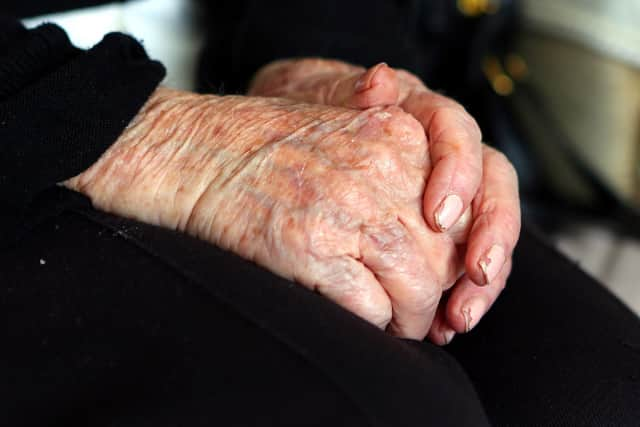The key areas in the care sector that need fixing and how we can go about fixing them - Nick Swash
We used these sessions to encourage ideas and as a result we have identified five key areas where help and change is needed which are education; recruitment; training; communication and business services.
We have also been recruiting associates to work with us on improving these five areas and we are delighted to say nearly 70 companies and organisations have already got on board. Nearing one thousand followers on LinkedIn alone, there is clearly an appetite for what we have started.
Advertisement
Hide AdAdvertisement
Hide AdRecently we ran an online forum with some of the associates to review the five areas we need to change, and it was a brilliant collaboration of ideas which not only supported the direction we are going in, but also generated new ideas and suggestions to contribute to our overall plan.


So what do people want to change and how can we develop these five key areas? Firstly education, which is something often paid lip service to in care.
Our focus needs to be shifting the perception of working in the care industry, showing the diversity of roles and also educating people from a young age that it is possible to have a career in care. Government funding is being placed into improving training in construction, social care and IT, so let us work with some of these providers to ensure the right messages are being communicated. We have already developed links with universities in Coventry, Hull and York, along with many other colleges.
Secondly recruitment, more importantly retention. Recruiting people into care is actually quite successful, it is keeping hold of them that is the challenge. This can be improved by developing awareness with prospective applicants to the different types of care and providing information to enable them to make informed choices as to which area would best suit them. We need to raise awareness about the differences between each sector of social care and develop a mechanism whereby candidates can self-match their values to the right sector to enable success and longevity within the sector.
Advertisement
Hide AdAdvertisement
Hide AdWe also need to look at transferable skills, for example, 75 per cent of people who work in shops are unpaid carers. Over the last year over 60,000 have lost their jobs in retail, these are people with both transferable skills, but also invaluable experience, but we need to signpost this to them, so they consider a role in care as an option.
The third area we need to cover is improving training. One of the key issues that came out of one of the workshops is the fact that there is no grief training in care, when the highest sickness rates relate to dealing with the loss of an individual – it is just seen as part of the job.
We are therefore going to create and deliver a grief awareness training package that includes a death and dying module to prepare those working within the sector to enable them to be more aware of the impact of grief. We then need to influence key stakeholders to make this form part of mandatory training for those working within the care sector.
The fourth area is communication. Social care is always referred to after healthcare, and we need to change these priorities. We need to collaborate more, and the support we are receiving shows that people want this intervention and support.
Advertisement
Hide AdAdvertisement
Hide AdThe figures vary between 7-11 million unpaid carers in the UK. There is help available for them, there are charities there to support them, but the message isn’t getting through. We need to see how we can improve this and continue our #workingtogether model.
Finally business services. We have started to develop cluster groups, to help develop joint ways of working that allows use of shared resources, delivers benefits of economies of scale and joint purchasing strength. Instead of being a little voice in the sector, join forces and work together to create a shared louder voice, so that people take notice.
It has been a brilliant start to the Alliance, and we now know the direction we are heading in. Combined with above however is improving technology across the board in all the areas identified. Whilst people, and the right people, are absolutely key in care, developments in artificial intelligence and the systems we use could completely transform the care sector. Digitisation and grants and funding to support this are available, but these need better signposting and understanding.
Again by working together we can improve this for everyone involved. Interested in getting involved? Momentum is building, we are gaining hundreds of followers, so why not get involved and be part of something special too at the Yorkshire Care Alliance.
Nick Swash is CEO of the Yorkshire Care Alliance.
Comment Guidelines
National World encourages reader discussion on our stories. User feedback, insights and back-and-forth exchanges add a rich layer of context to reporting. Please review our Community Guidelines before commenting.